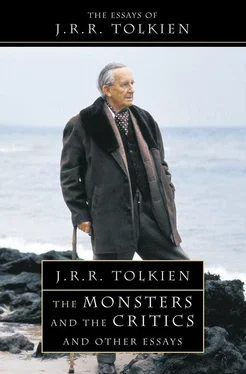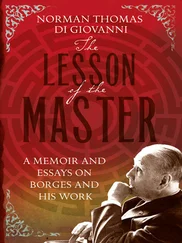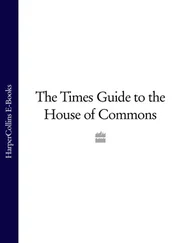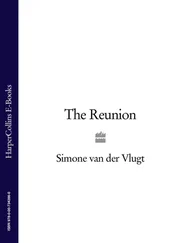Other references he makes are casual and formal, such as beorht beacen Godes, of the sun (571). An exceptional case is Godes leoht geceas 2469, describing the death of Hrethel, Beowulf’s grandfather. This would appear to refer to heaven. Both these expressions have, as it were, inadvertently escaped from Christian poetry. The first, beacen Godes, is perhaps passable even for a heathen in this particular poem, in which the theory throughout is that good pagans, when not tempted or deluded by the devil, knew of the one God. But the second, especially since Beowulf himself is formally the speaker, is an item of unsuitable diction – which cannot be dismissed as a later alteration. A didactic reviser would hardly have added this detail to the description of the heathen king’s death: he would rather have removed the heathen, or else sent him to hell. The whole story alluded to is pagan and hopeless, and turns on blood-feud and the motive that when a son kills his brother the father’s sorrow is intensified because no vengeance can be exacted. The explanation of such occasional faults is not to be sought in Christian revision, but in the fact that before Beowulf was written Christian poetry was already established, and was known to the author. The language of Beowulf is in fact partly ‘re-paganized’ by the author with a special purpose, rather than christianized (by him or later) without consistent purpose. Throughout the poem the language becomes more intelligible, if we assume that the diction of poetry was already christianized and familiar with Old and New Testament themes and motives. There is a gap, important and effective poetically whatever was its length in time, between Cædmon and the poet of Beowulf. We have thus in Old English not only the old heroic language often strained or misused in application to Christian legend (as in Andreas or Elene ), but in Beowulf language of Christian tone occasionally (if actually seldom) put inadvertently in the mouth of a character conceived as heathen. All is not perfect to the last detail in Beowulf. But with regard to Godes leoht geceas, the chief defect of this kind, it may be observed that in the very long speech of Beowulf from 2425–2515 the poet has hardly attempted to keep up the pretence of oratio recta throughout. Just before the end he reminds us and himself that Beowulf is supposed to be speaking by a renewed Beowulf maðelode (2510). From 2444 to 2489 we have not really a monologue in character at all, and the words Godes leoht geceas go rather with gewat secean soðfœstra dom as evidence of the author’s own view of the destiny of the just pagan.
When we have made allowance for imperfections of execution, and even for some intentional modification of character in old age (when Beowulf becomes not unnaturally much more like Hrothgar), it is plain that the characters and sentiments of the two chief actors in the poem are differently conceived and drawn. Where Beowulf’s thoughts are revealed by the poet we can observe that his real trust was in his own might. That the possession of this might was a ‘favour of God’ is actually a comment of the poet’s, similar to the comment of Scandinavian Christians upon their heathen heroes. Thus in line 665 we have georne truwode modgan mœgenes, metodes hyldo. No and is possible metrically in the original; none should appear in translation: the favour of God was the possession of mœgen . Compare 1272–3: gemunde mœgenes strenge, gimfœste gife ðe him God sealde . 36Whether they knew it or not, cuþon (or ne cuþon) heofena Helm herian, the supreme quality of the old heroes, their valour, was their special endowment by God, and as such could be admired and praised.
Concerning Beowulf the poet tells us finally that when the dragon’s ruinous assault was reported, he was filled with doubt and dismay, and wende se wisa þœt he Wealdende ofer ealde riht ecean Dryhtne bitre gebulge . It has been said that ofer ealde riht, ‘contrary to ancient law’, is here given a Christian interpretation; but this hardly seems to be the case. This is a heathen and unchristian fear – of an inscrutable power, a Metod that can be offended inadvertently: indeed the sorrow of a man who, though he knew of God, and was eager for justice, was yet far estranged, and ‘had hell in his heart’.
(c) Lines 175–88
These lines are important and present certain difficulties. We can with confidence accept as original and genuine these words as far as helle gemundon on modsefan – which is strikingly true, in a sense, of all the characters depicted or alluded to in the poem, even if it is here actually applied only to those deliberately turning from God to the Devil. The rest requires, and has often received, attention. If it is original, the poet must have intended a distinction between the wise Hrothgar, who certainly knew of and often thanked God, and a certain party of the pagan Danes – heathen priests, for instance, and those that had recourse to them under the temptation of calamity – specially deluded by the gastbona , the destroyer of souls. 37Of these, particularly those permanently in the service of idols ( swylce wœs þeaw hyra), which in Christian theory and in fact did not include all the community, it is perhaps possible to say that they did not know ( ne cuþon ), nor even know of ( ne wiston), the one God, nor know how to worship him. At any rate the hell (of fire) is only predicted for those showing malice ( sliðne nið ), and it is not plain that the freoðo of the Father is ultimately obtainable by none of these men of old. It is probable that the contrast between 92–8 and 175–88 is intentional: the song of the minstrel in the days of untroubled joy, before the assault of Grendel, telling of the Almighty and His fair creation, and the loss of knowledge and praise, and the fire awaiting such malice, in the time of temptation and despair.
But it is open to doubt whether lines 181–88 are original, or at any rate unaltered. Not of course because of the apparent discrepancy – though it is a matter vital to the whole poem: we cannot dismiss lines simply because they offer difficulty of such a kind. But because, unless my ear and judgement are wholly at fault, they have a ring and measure unlike their context, and indeed unlike that of the poem as a whole. The place is one that offers at once special temptation to enlargement or alteration and special facilities for doing either without grave dislocation. 38I suspect that the second half of line 180 has been altered, while what follows has remodelled or replaced a probably shorter passage, making the comment (one would say, guided by the poem as a whole) that they forsook God under tribulation, and incurred the danger of hell-fire. This in itself would be a comment of the Beowulf poet, who was probably provided by his original material with a reference to wigweorþung in the sacred site of Heorot at this juncture in the story.
In any case the unleugbare Inkonsequenz (Hoops) of this passage is felt chiefly by those who assume that by references to the Almighty the legendary Danes and the Scylding court are depicted as ‘Christian’. If that is so, the mention of heathen þeaw is, of course, odd; but it offers only one (if a marked) example of a confusion of thought fundamental to the poem, and does not then merit long consideration. Of all the attempts to deal with this Inkonsequenz perhaps the least satisfactory is the most recent: that of Hoops, 39who supposes that the poet had to represent the Danish prayers as addressed to the Devil for the protection of the honour of the Christengott , since the prayers were not answered. But this attributes to the poet a confusion (and insincerity) of thought that an ‘Anglo-Saxon’ was hardly modern or advanced enough to achieve. It is difficult to believe that he could have been so singularly ill instructed in the nature of Christian prayer. And the pretence that all prayers to the Christengott are answered, and swiftly, would scarcely have deceived the stupidest member of his audience. Had he embarked on such bad theology, he would have had many other difficulties to face: the long time of woe before God relieved the distress of these Christian Danes by sending Scyld (13); and indeed His permission of the assaults of Grendel at all upon such a Christian people, who do not seem depicted as having perpetrated any crime punishable by calamity. But in fact God did provide a cure for Grendel – Beowulf, and this is recognized by the poet in the mouth of Hrothgar himself (381 ff.). We may acquit the maker of Beowulf of the suggested motive, whatever we may think of the Inkonsequenz. He could hardly have been less aware than we that in history (in England and in other lands), and in Scripture, people could depart from the one God to other service in time of trial – precisely because that God has never guaranteed to His servants immunity from temporal calamity, before or after prayer. It is to idols that men turned (and turn) for quick and literal answers.
Читать дальше












